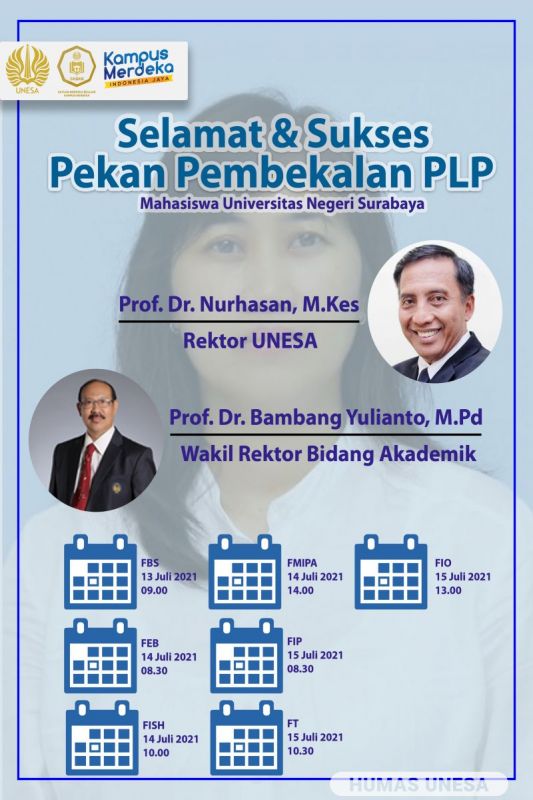
Unesa.ac.id, Surabaya–Students must be really prepared to become competent and professional graduates in their fields. For this purpose, the State University of Surabaya held a School Field Introduction (PLP) for three days, 13-15 July 2021 in seven faculties.
Introduction to the School Field (PLP) is one of the programs in preparing reliable and professional educator candidates. Participants who took part in the PLP were 2,983 students with several formats. For class 2018 students, the implementation of PLP is divided into two categories, namely there is PLP I with a load of 1 credit, and PLP II with a load of 3 credits.
Meanwhile, for students from the class of 2019, 2020, and after, it is adjusted to the provisions of the implementation of the Independent Learning and Independent Campus (MBKM). Participants will take practical learning courses outside UNESA or at school for one semester with a load of 18-20 credits.
The debriefing began at the Faculty of Languages and Arts (FBS) on July 13, 2021. Then on July 14, 2021 it was held in three faculties, namely the Faculty of Economics and Business (FEB), the Faculty of Social Sciences and Law (FISH), and the Faculty of Mathematics and Natural Sciences (FMIPA). . Then on July 15, 2021 it will be held at the Faculty of Education (FIP), Faculty of Engineering (FT), and Faculty of Sports Science (FIO).
On that occasion, there were several things that the participants learned and explored, namely getting to know the world of school more closely. In addition, participants deepen their knowledge and skills, from making lesson plans and designs to direct teaching exercises through microteaching programs.
“Use this opportunity as best as possible to develop teaching competencies, so that they can educate effectively, efficiently, and innovatively. It is hoped that later he can become a professional education graduate," said Dr. Muhammad Sholeh, M.Pd. as Head of the UNESA MBKM Unit. The task of educating is quite challenging, therefore, he added, educators must have a strong and virtuous character based on the values of Pancasila and religion.
According to Ki Hajar Dewantara's teachings, he continued, teachers must be able to be a person who can be admired and imitated by their students. "This is not easy, but you have to be able to apply the concept so that later you become a teacher who becomes a role model for students and the community and inspires and benefits all," he concluded. (hasna/zam)
Share It On:






